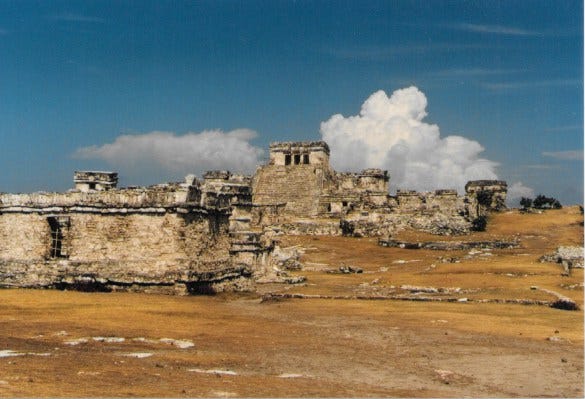Today’s Contemplation: Collapse Cometh XXXIII
November 25, 2021

Overlooking Ecological Overshoot
Today’s thought was prompted by an Andrew Nikiforuk article in The Tyee and my recent rereading of William Catton Jr.’s Overshoot.
I just finished rereading William Catton’s Overshoot. One of the things I’m coming to better appreciate is Catton’s idea that the ‘Age of Exuberance’ (a time created by human expansion in almost all its forms and mostly facilitated by our extraction of fossil fuels) has so infiltrated our thinking that we tend to view the world through almost exclusively human-created institutional lenses, especially economic and political ones. We have come to think of ourselves as completely removed from nature: we sit above and beyond our natural environment with the ability to both control and predict it; primarily due to our ‘ingenuity’ and ‘technological prowess’.
This non-ecological worldview is still very much entrenched in our thinking and comes through quite clearly in mainstream narratives regarding our various predicaments. Usually it goes like this: our ingenuity and technological prowess can ‘solve’ anything thrown our way so we can continue business-as-usual; in fact, we can continue expanding our presence and increase our standard of living to infinity and beyond (apologies to Buzz Lightyear).
What are by now increasingly looking to be insoluble problems appear to have been solved in the past by two different approaches that Catton describes: the takeover method (move into a different area via migration or military expansion) or the drawdown method (depend upon non-renewable and finite resources that have been laid down millennia ago). On a finite planet, there are limits to both of these approaches.
But because of our tendency towards cornucopian thinking, most analyses overlook the idea of resource depletion or overloaded sinks that can help to cleanse our waste products that accompany growth on a finite planet. It’s all about economics, politics, technology, etc..
Our traditional ‘solutions’, however, have probably surpassed any sustainable limits and instead of being able to rely upon our ‘savings’ we have to shift towards relying exclusively upon our ‘income’ which, unfortunately, doesn’t come close to being able to sustain so many of us. To better appreciate the increasing need to do this we also need to shift our interpretive paradigm towards one that puts us back within and an intricate part of ecological systems. Ecological considerations, especially that we’ve overshot our natural carrying capacity, are missing in action from most people’s thinking.
The first thing one must do when found in a hole you want to extricate yourself from is to stop digging. Until and unless we can both individually and as a collective stop pursuing the infinite growth chalice, we travel further and further into the black hole that is ecological overshoot with an eventual rebalancing (i.e., collapse) that we cannot control nor mitigate. Our ingenuity can’t do it. Our technology can’t do it (in fact, there’s a good argument to be made that pursuing technological ‘solutions’ actually exacerbates our overshoot).
It is increasingly likely that a ‘solution’ at this point is completely out of our grasp. We’ve pursued business-as-usual despite repeated warnings because we’ve viewed and interpreted our predicament through the wrong paradigm and put ourselves in a corner. It is likely that one’s energies/efforts may be best focused going forward upon local community resilience and self-sufficiency. Relocalising as much as possible but especially procurement of potable water, appropriate shelter needs (for regional climate), and food should be a priority. Continuing to expand and depend upon diminishing resources that come to us via complex, fragile, and centralised supply chains is a sure recipe for mass disaster.